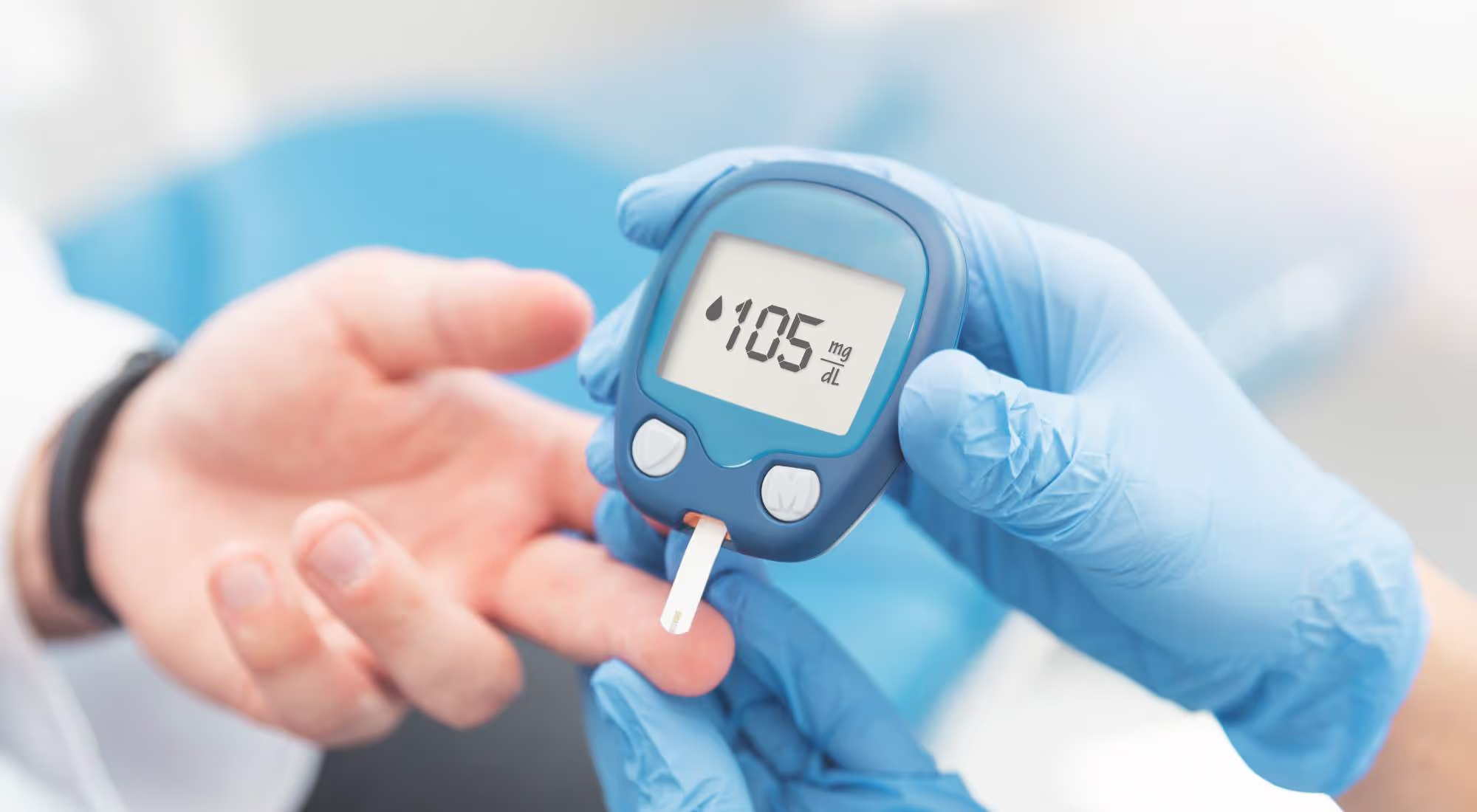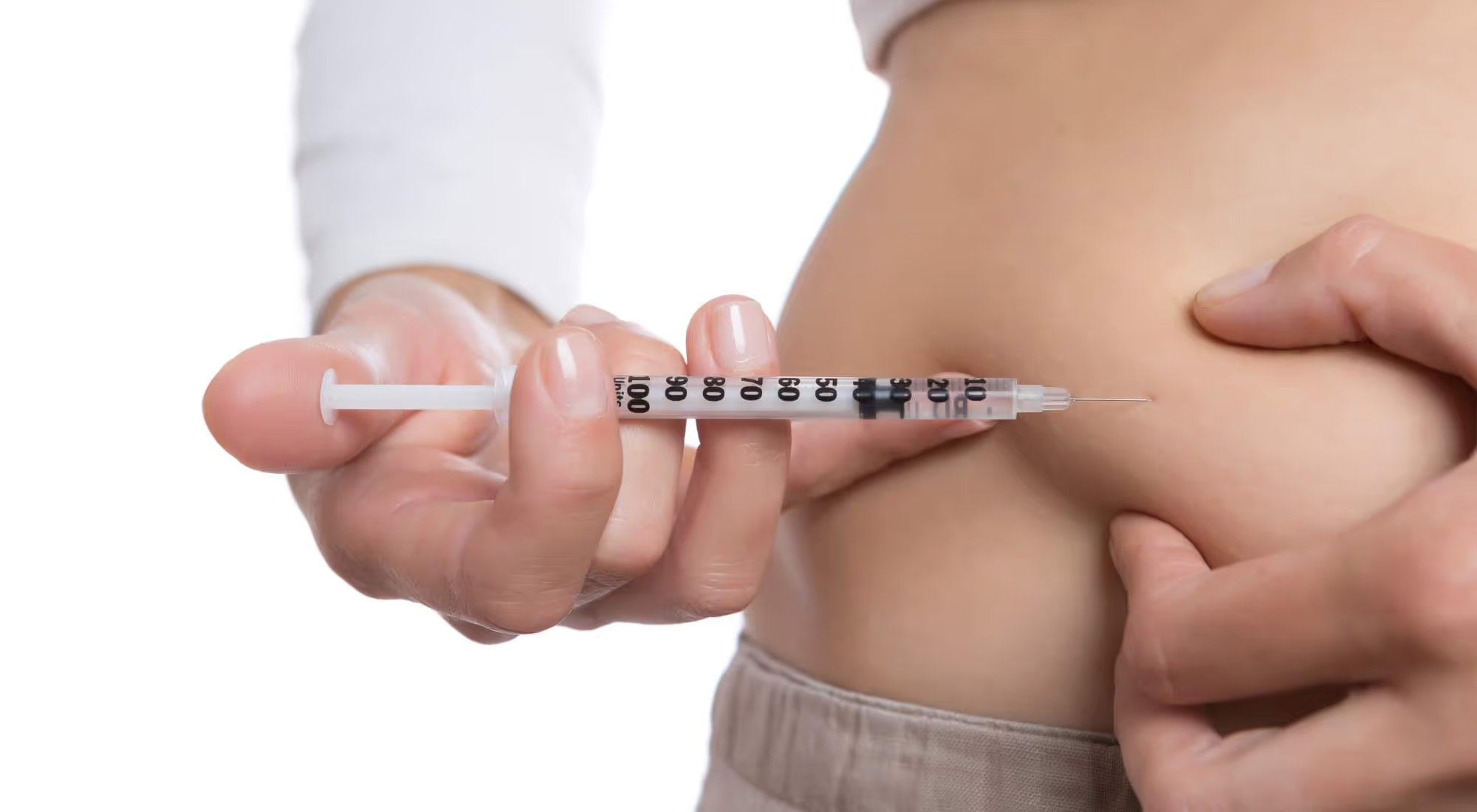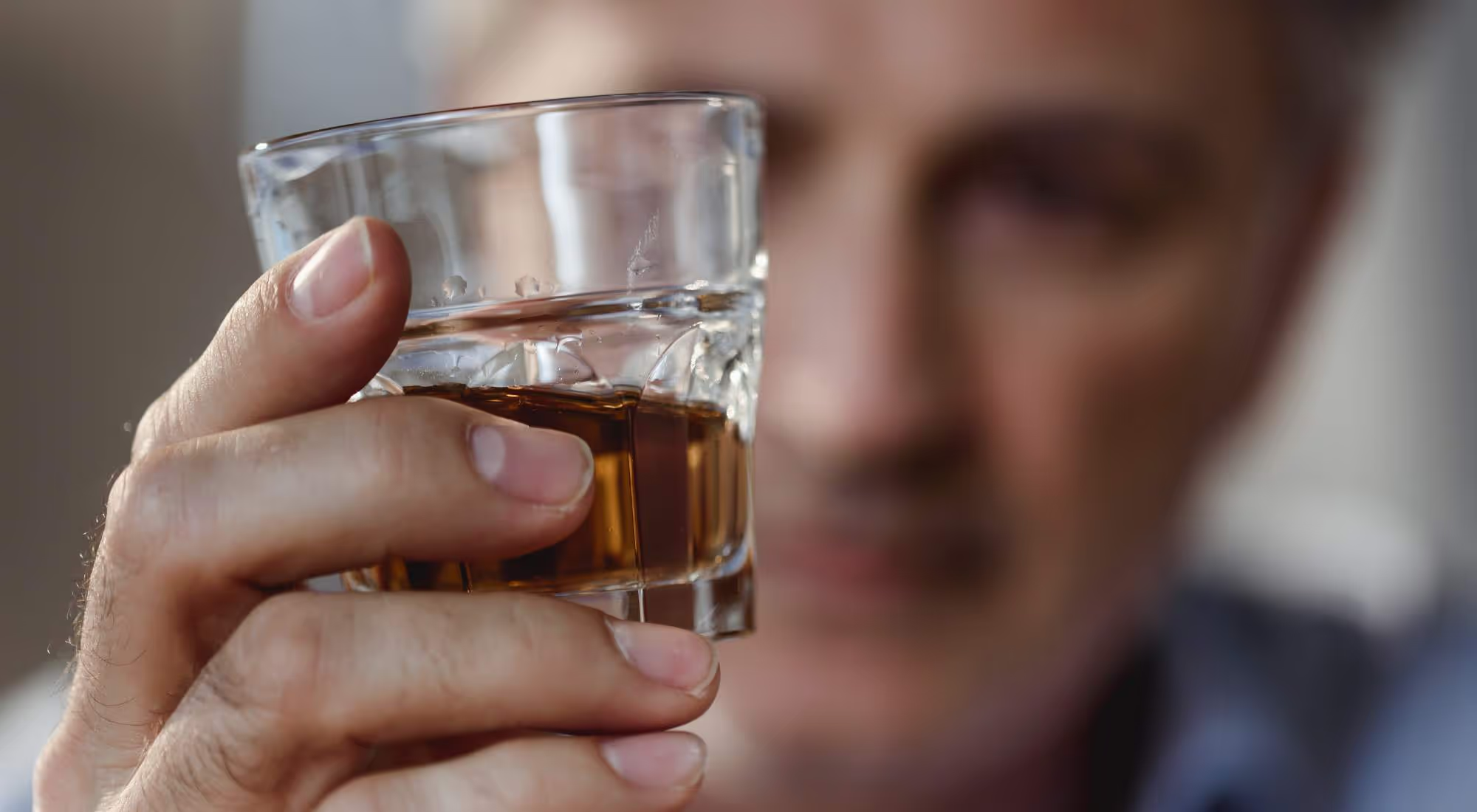Does Alcohol Abuse Cause Diabetes? Understanding the Overlooked Connection

Dizzy, disoriented, shaky, and dripping with sweat — it’s difficult to tell if the booze is making you feel this way, or if it’s something else. Either way, you know your body doesn’t feel right.
It can be confusing; the effects of alcohol versus diabetic symptoms easily blur together. You wonder if there’s a connection between the alcohol you consume and the symptoms your body may be feeling.
Can a person get diabetes from heavy alcohol use?
In this article, we’ll explore how the consumption of alcohol may affect your blood sugar, the warning signs to watch for, and how you may be able to lower your risk of symptoms.
Table of Contents
- Can Alcohol Abuse Cause Diabetes?
- How Alcohol Affects Blood Sugar and Insulin Function
- The Link Between Alcohol Abuse and Type 2 Diabetes
- Warning Signs: When Alcohol Use May Be Affecting Your Blood Sugar
- Prevention and Recovery: Taking Control Before It’s Too Late
- Concerned About the Link Between Alcohol and Diabetes? Dove Recovery Can Help You Reclaim Your Health
Yes, heavy alcohol consumption can increase the risk of developing diabetes.
Drinking excessive amounts of alcohol can increase blood sugar levels, creating higher chances of insulin resistance. Alcoholic drinks often contain many calories, so along with the risk of obesity, you may be increasing the risk of developing diabetes as well.

Short-Term Impacts of Alcohol on Blood Glucose
Consuming alcohol can both raise and lower blood sugar levels. Since your liver prioritizes metabolizing the alcohol in your system, your liver temporarily fails to perform its glucose-related functions, including its ability to store and release glucose.
Alcohol can initially lead to a spike in your blood sugar, but your liver’s ability to process and release that glucose is impaired, leading to a significant drop in your sugar levels.
A person's blood alcohol content (BAC) is a measure of how much alcohol is in their blood and is determined by how they metabolize alcohol. Alcohol is processed differently from person to person due to variations in how the body breaks down and eliminates alcohol.
Individual factors that may exacerbate the spike and drop in blood sugar when drinking alcohol include:
- Metabolic rate
- Food intake (amount and type)
- Body weight
- Medications
- Gender
- Genetics
The most significant concern regarding alcohol consumption and blood sugar is the risk of hypoglycemia or dangerously low blood sugar levels. Research indicates that consuming alcohol may induce hypoglycemia, and can be especially dangerous for individuals with diabetes.
Long-Term Effects of Heavy Drinking on Metabolic Health
Chronic drinking can impair the secretion of insulin and induce oxidative stress. Excessive alcohol consumption may lead to the impairment of glucose regulation and an increased risk of developing diabetes.
According to one study, heavy alcohol consumption may be associated with up to 43% increased risk of diabetes.
Not only can alcohol abuse cause diabetes, but long-term alcohol use can also cause chronic pancreatitis, which leads to a decline in insulin secretion and damages your pancreas. Weight gain from alcohol’s high-calorie content can further provoke insulin resistance, contributing to obesity and an increased risk of developing diabetes as well.
Are you concerned that alcohol is impacting your blood glucose and metabolic health, but you're struggling to cut back or quit?
Dove Recovery is here to help. Our alcohol addiction rehab program, located in Columbus, Ohio, focuses on personalized care designed to support and teach coping skills for your journey to recovery.
Our comprehensive treatment programs emphasize a compassionate approach designed to treat alcohol use disorder (AUD) effectively and with dignity. Give us a call to find a program that works for you.

Scientific Evidence Supporting the Connection
Evidence through scientific research supports that alcohol abuse can cause diabetes by triggering its development through impaired glucose metabolism and pancreatic dysfunction.
The American Diabetes Association (ADA) warns that too much drinking (more than 3 alcoholic drinks daily) can lead to higher glucose and blood sugar levels. Both Type 1 and Type 2 diabetes require careful attention to a person’s diet and blood sugar levels — and alcohol consumption can significantly influence these factors.
In one study, alcohol abuse, referred to as binge drinking, was not only an epidemiological risk factor but also a direct cause of insulin resistance and an indicator of metabolic syndrome and Type 2 diabetes. Avoiding binge drinking may be essential to maintain healthy sugar levels and reduce the risk of diabetes.

Risk Factors That Multiply With Alcohol Abuse
Alcohol abuse can intensify several risk factors, including cardiovascular disease. Research shows that cardiovascular disease continues to be one of the leading causes of death in people with Type 2 diabetes.
Heavy drinking can also cause the accumulation of certain acids in the blood that may result in severe health consequences and worsen diabetes-related medical complications, such as:
- Disturbances in fat metabolism
- Liver disease
- Nerve damage
- Eye disease
- Weakened immune system
Excessive alcohol may also result in compounded social and wellness risks, such as mental health conditions and relationship problems with friends and family. Depression and anxiety can create a sedentary lifestyle, increasing the risk of obesity and negatively impacting how the body regulates blood sugar.
Dove Recovery understands that the severity of alcohol addiction can range from mild to severe, and everyone has different goals for their recovery journey. Our alcohol treatment plans may include:
- Individual counseling sessions
- Group therapy
- Family therapy
- 12-step recovery program
- Holistic therapy
- Motivational interviewing
We believe in addressing not only the physical aspects of addiction but the contributing emotional and psychological factors as well. Contact us today to learn more.

Early Symptoms To Watch For — And Why They’re Often Overlooked
Your blood sugar levels may be impacted by both diabetes and alcohol consumption.
What are some of the warning signs that may indicate alcohol abuse that may cause diabetes?
Common warning signs may include:
- Increased thirst
- Blurry vision
- Mood swings
- Shakiness
- Confusion
- Rapid heart rate
- Slurred speech
Because these symptoms can overlap with both diabetes and AUD, it can be challenging to differentiate between them, especially if alcohol is masking your diabetes symptoms. Choosing the right facility for alcohol addiction treatment may be a crucial step in diabetes prevention.
Screening for Diabetes in People With Alcohol Use Disorder
Many physical and psychological risk factors contribute to alcohol addiction. It’s vital to screen for diabetes in people with AUD to identify and manage potential risks early, ensuring better overall health outcomes.
Integrated medical and addiction care promotes person-centered care with a focus on improved recovery outcomes.
Dove Recovery treatment programs aim to provide comprehensive care and effective addiction treatment by combining medical support with behavioral therapies, counseling, and holistic approaches.

Lifestyle Changes That May Lower Risk
Making actionable changes to your lifestyle may lower your risk of developing diabetes. Dove Recovery’s holistic approach includes the practice of:
- Routine physical activity
- Improved nutrition
- Weight management
- Strategies to manage stress
- Quitting alcohol
Can Quitting Alcohol Reverse Diabetes?
Quitting alcohol may not reverse diabetes, however, it can substantially improve its management by improving blood sugar control and preventing its progression. For those with pre-diabetes, stopping the use of alcohol may fend off the onset of full-blown diabetes.
Now that you have more information, you may still be worried that alcohol can turn you into a diabetic. Your next step may be to seek an alcohol rehab program.
Dove Recovery can help you through the process of withdrawal and recovery with our:
- Intensive Outpatient Program (IOP)
- Partial Hospitalization Program (PHP)
- Outpatient Programs (OP)
- Detox Programs
We understand that long-lasting recovery requires personalized care, a solid support system, and focused therapies. Contact us today to begin your journey of recovery and prevention.

